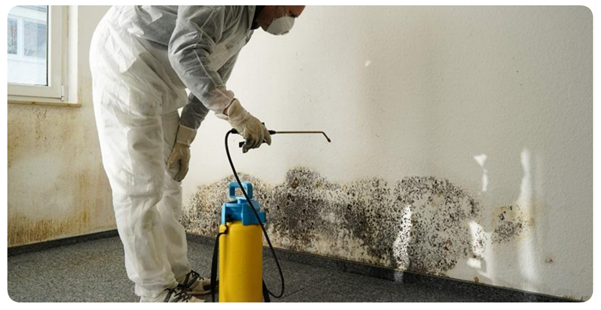Get the Best Results in Hospitals by Using Dental Instruments USA
Hospital dental care is especially important today since the field is very vast and dynamic, hence the need to receive quality dental care when admitted in a hospital. Dental instruments are essential in that they guarantee the patient a proper treatment as implied in the following; The USA is one of the world’s largest producers of dental instruments, which are appreciated for their make, sturdiness as well as uniqueness. This article focuses on factors that must be taken into account to obtain the maximum effect and use different Dental Instruments USA produced in the USA.
Quality Standards of Dental Instruments from the USA
When it comes to dental instruments the products from the USA are usually preferred for their high quality. These instruments are globally approved and also have strict standard examination requirements before they are used. They include certifications like the ISO, and FDA approval, all of which speak to the extremely high level of quality assurance currently exhibited by the American manufacturers.
Key Features of USA-Made Dental Instruments
Another factor that makes the USA-made dental instruments to stand out, is the raw materials that are used in the making of the dental instruments. The frame and other parts are made of Stainless steel and other alloys to make uses long lasting and effective. Accuracy and comfort are then considered and offered to the dental personnel surgical tools that are as precise as they are easy on the hand.
Benefits of Using High-Quality Dental Instruments in Hospitals
There are following advantages in using high-quality dental instruments in the hospital. First and foremost, patient care is obviously improved because accurate tools minimize the danger of mishaps. Also, these instruments enhance productivity of the dental workers since procedures that used to take long are now completed in a shorter span.
The Impact of Technological Advancements
Modern technologies are evident in the dental instrument manufacturing industry whereby the production of more sophisticated instruments providing better quality care is realized. For example, computers and lasers are now essential in a modern practicing dental surgeon to be able to deliver optimum and less invasive technology in the treatment.
Choosing the Right Dental Instruments for Your Hospital
First of all, selection of the proper dental instruments could not be overestimated if speaking about results. The choice of hospital beds for dental clinics should depend on the quality of the material used in production, the company’s image, and potential requirements. Comparing and thus selecting a suitable supplier and his products will enable hospitals to come up with the right choice.
Challenges Faced by Hospitals in Procuring Dental Instruments
Among the problems that exist within hospitals it is possible to identify the difficulties in obtaining the dental instruments due to the lack of funds, and also question the authenticity of the instruments. This puts a pressure on the hospitals to overcome the following challenges: The hospitals should seek to engage with credible suppliers, and where possible sacrifice quantity to go for quality.
Case Study of Successful Implementation of USA Dental Instruments
The factors favoring the use of USA-made dental instruments can be illustrated with the help of the case of a leading hospital in New York. Hence upgrading of dental tools and equipment fromimports to high quality American products was perceived to have a positive impact on the patient outcomes, time savings and general satisfaction by the dental personnel at the hospital. Thus, this success story emphasizes the need to spend more on quality instruments.
Role of Training in Optimizing Dental Instrument Use
For effective usage of dental instruments, the trainees require adequate training on the specific tools to be used. It is important for the dental workers to upgrade themselves and the respective programs help them achieve that goal. This means benefits such as practical workshops, online classes can be seen as a way to improve a skill.
Sustainability in Dental Instrument Manufacturing
Therefore, sustainability is an aspect of concern when it comes to the manufacturing of dental instruments. Some of the existing environmentally socially responsible moves shown by many USA based manufacturers include; use of recyclable materials and much on waste. Sustainability is considered to be one of the key factors that will take a progressively more crucial position in the industry with time.
Custom Solutions for Hospital Needs
Because hospitals can differ significantly in regard to the types of instruments they use, these institutions may need specialized sets of instruments to work with. Today, even many American manufacturers are ready to deal with customized products, so the hospitals can collaborate directly with the suppliers to create instrument sets with regard to their needs. In this way, facilities can guarantee that they have the appropriate equipment to be supplied for each procedure.
Collaboration with Dental Instrument Manufacturers
Cultivating effective relationships with the producers of dental instruments can be much helpful for the hospitals. Sales negotiations are built when suppliers directly talk to the hospital, and the hospitals can give feedback and make requests for changes. The topic of this partnership is to create new ideas as well as improving the total quality of the services offered by these healthcare facilities.
Ensuring Compliance and Safety in Dental Procedures
In the procedures that are usually carried out in dental facilities; safety measures have to be strictly followed. Medical instruments have a very paramount importance in the context of surgeries and treatments, because only high quality instruments rooted in antiseptic and infection control can best of all guarantee the final results. That is why sterilization and maintenance of the instruments is one of the important stages for adherence to the safety standards.
The Future of Dental Instruments in Hospitals
Taking into account the current trends and innovations recommended and adopted in the use of dental instruments in hospital systems have a promising future. Currently, dental care has been enhanced by advanced technologies like artificial intelligence and 3D printing which are believed to bring in more enhancement in terms of precision and efficiency. As these approaches keep on evolving, hospitals stand to benefit with the general patient status of their conditions being changed for the better.
Conclusion
Having dental instruments manufactured in the USA can bring the following advantages to hospitals: From the medical side, there is improved patient safety and from the dental specialists’ aspect, the productivity increases. This indicates that by having quality tools, hospitals are likely to offer excellent services to their patients and cause the maximum impact. The dental instrument industry is dynamic, and hence, the hospitals that want to remain relevant must keep up with the current changes.
FAQs
Q1: Why are USA-made dental instruments preferred in hospitals?
A: USA-made dental instruments are preferred for their high-quality materials, precision, and adherence to stringent quality standards.
Q2: How do quality dental instruments enhance patient safety?
A: Quality dental instruments reduce the risk of complications and errors, ensuring safer and more effective procedures for patients.
Q3: What should hospitals consider when choosing dental instruments?
A: Hospitals should consider factors such as material quality, manufacturer reputation, and specific departmental needs when choosing dental instruments.
Q4: Are there eco-friendly dental instruments available?
A: Yes, many USA-based manufacturers offer eco-friendly dental instruments made from recyclable materials and produced using sustainable practices.
Q5: How does training impact the use of dental instruments?
A: Training ensures that dental professionals are skilled in the latest techniques and technologies, optimizing the use of instruments and enhancing patient care.



